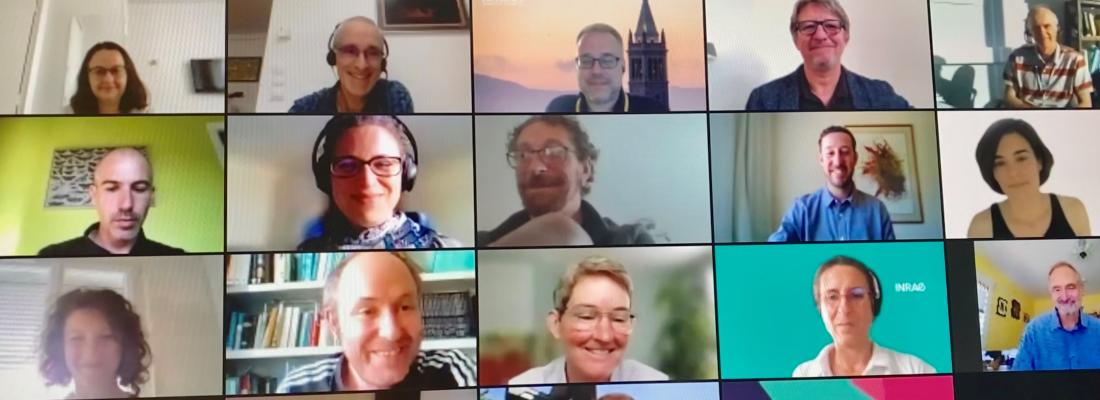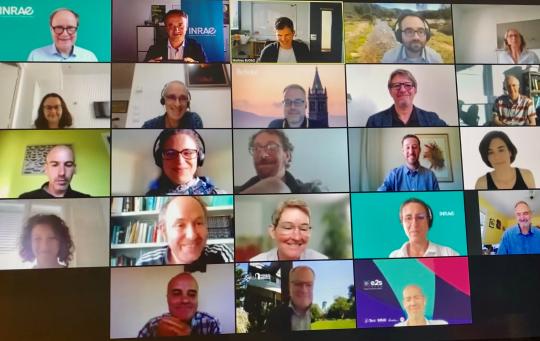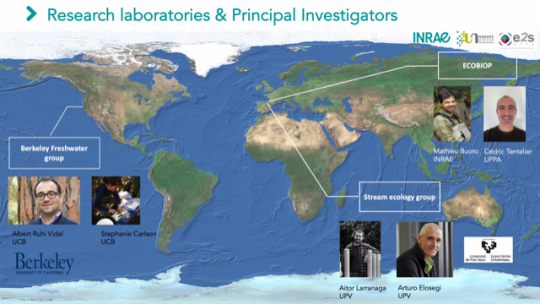Climate change and risks Reading time 2 min
France-Spain-USA: a new international associated laboratory dedicated to climate impacts on freshwater ecosystems
Published on 11 June 2021

By bringing together their knowledge, skills and experimental facilities through the LIA MacLIFE, the three teams[1] will explore the impacts of climate change at various levels of ecological organisation (from genes to ecosystems) and the way they interact on different time and space scales. The aim is to inform new policies and management actions that promote the stability, resilience and adaptation of aquatic populations and communities to climate change.
The purpose of the MacLIFE project is to understand how ecological networks and biodiversity (at several interconnected levels of organisation) constitute networks that support adaptive responses by species and the resilience of freshwater ecosystems to rapid environmental change. Particular attention will be paid to the consequences of extreme events (increased frequency of floods, droughts, etc.) on aquatic organisms, including threatened heritage and fishery resource species (e.g. migratory species such as salmon and eel), as well as on ecosystems and the services they provide. This understanding should enable scientists to better anticipate risks based on the climatic diversity of the study sites (France, California, Spain).
The project seeks to transfer knowledge to the wider scientific community and resource managers to develop future management strategies for natural resources, ecosystems and their associated benefits.
This new LIA is the result of a long collaboration between the partners. The I-Site Energy Environment Solutions (E2S), supported by the University of Pau and the Adour Region, is playing a major role by providing funding for thesis and post-doctoral projects for the next two years, in line with their historical partnership with the ECOBIOP Joint Research Unit.
[1] ECOBIOP (Behavioural Ecology and Fish Population Biology Joint Research Unit) in Saint-Pée-sur-Nivelle, the Freshwater Group in Berkeley and the Aquatic Ecology Group in Bilbao.


